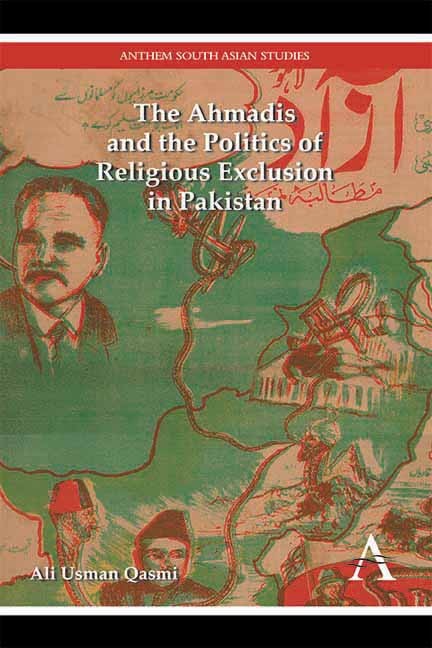Book contents
- Frontmatter
- Contents
- Acknowledgments
- Introduction
- Part I
- Chapter I The Records of the Court of Inquiry and the Munir–Kiyani Report
- Chapter II The Background to Jama'at Ahmadiyyah and the Origins of the Anti-Ahmadi Movement: The Role of Majlis-i-Ahrar and Majlis-i-' Amal
- Chapter III The Political Hierarchy and Administrative Structure of Pakistan: Contextualizing the Events of 1952–53
- Chapter IV Disturbances in Lahore and the Imposition of Martial Law
- Chapter V The Findings of the Munir—Kiyani Report
- Part II
- Debates on the Ahmadis after 1974: A Postscript
- Notes
- Bibliography
- Index
Chapter V - The Findings of the Munir—Kiyani Report
from Part I
Published online by Cambridge University Press: 05 September 2014
- Frontmatter
- Contents
- Acknowledgments
- Introduction
- Part I
- Chapter I The Records of the Court of Inquiry and the Munir–Kiyani Report
- Chapter II The Background to Jama'at Ahmadiyyah and the Origins of the Anti-Ahmadi Movement: The Role of Majlis-i-Ahrar and Majlis-i-' Amal
- Chapter III The Political Hierarchy and Administrative Structure of Pakistan: Contextualizing the Events of 1952–53
- Chapter IV Disturbances in Lahore and the Imposition of Martial Law
- Chapter V The Findings of the Munir—Kiyani Report
- Part II
- Debates on the Ahmadis after 1974: A Postscript
- Notes
- Bibliography
- Index
Summary
Introduction
Acts of violence, according to Nasser Hussain, cannot be divided into those executed under legal authority and those set against it. Hence, “the law in resorting to violence, a material act of killing, produces an intensified need for the external signature of legality in order to distinguish the two.” In other words, a violent situation, with or without the sanction of law, becomes a threat not to this or that property or individual right but to the law itself. Against this background, Hussain explains the setting up of inquiry commissions to probe violence. He gives the example of the commission set up after the Amritsar massacre of 1919 to look into the use of excessive force by General Reginald Dyer, who was responsible for killing hundreds of civilians that were violating a ban on public gathering. The official British concern was not about the number of people killed or their particular guilt or innocence, but the reasons for their death: “That is, it focuses not so much on the substance of Dyer's actions, but the logic with which they are explained. Everywhere in these official documents one finds confused answers to a question, sometimes tacit, sometimes explicitly asked: What is the proper object of martial law? It is answered by placing the massacre and martial law in the Punjab in its wider political context.”
The court of inquiry set up by the government of Punjab performed a similar function. It was not concerned with the killing of protestors; in fact it glorified those officers who were not reluctant to use legally sanctioned violence. The court of inquiry was instead mandated with the task of probing very much the same questions as suggested by Hussain: find out the circumstances in which the anti-Ahmadi movement had gained momentum to the point that it led to a breakdown in civil authority and investigate the recourse to martial law for its suppression. But while this chapter describes the setting up of the court of inquiry as an attempt to reinscribe state authority, it also details its defiance by the ulema and religio-political party leaders through various communicative techniques – which involved disrupting the smooth progression of court proceedings, ridiculing the court’s discourse on Islam and the use of rhetoric and satire.
- Type
- Chapter
- Information
- The Ahmadis and the Politics of Religious Exclusion in Pakistan , pp. 119 - 164Publisher: Anthem PressPrint publication year: 2014



